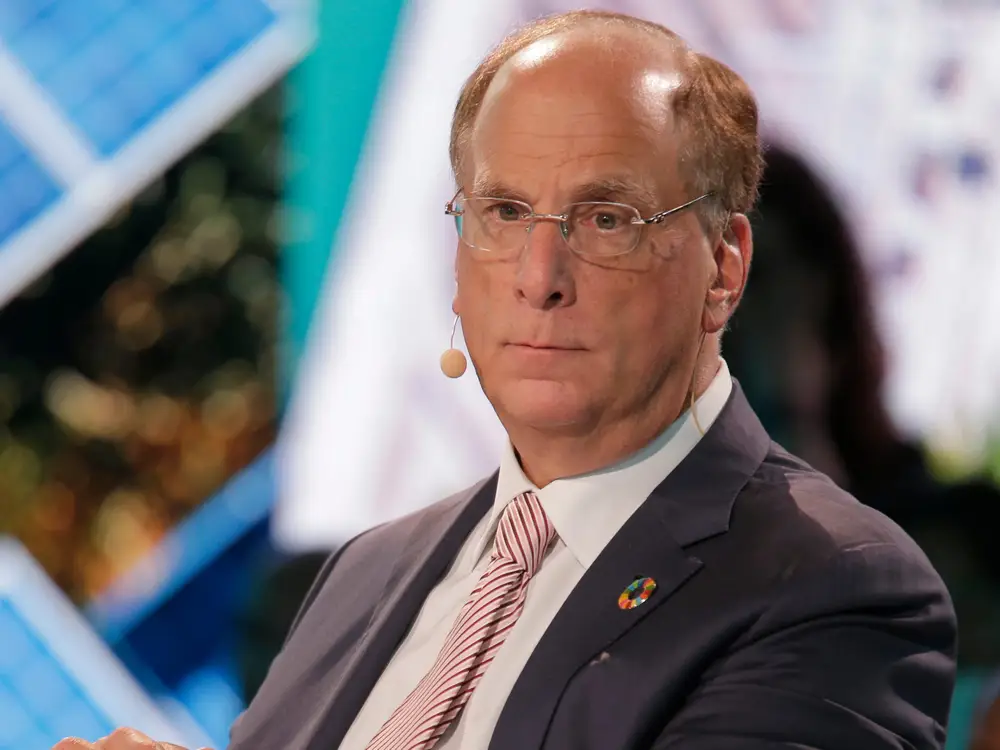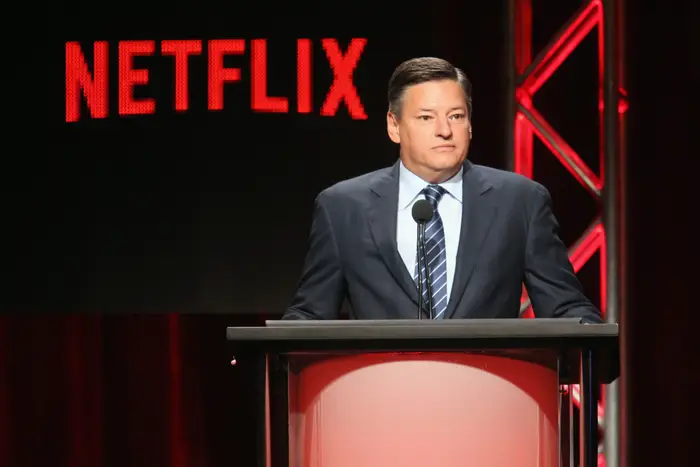Republicans labeled BlackRock as ‘woke.’ Here’s a brief history of how the firm has tried to shed that description.

BlackRock CEO Larry Fink.
Many big American companies have been quick to respond to President Donald Trump’s pushback on DEI, but none of their steps carry more symbolic weight than a retreat by BlackRock, the world’s largest asset manager.
An early advocate of diversity, equity, and inclusion, BlackRock has removed all mention of the strategy from its latest annual report. The asset manager and its CEO, Larry Fink, have over the years become targets for Republicans who claim the firm is too “woke.”
What was the DEI section in the asset manager’s last report has now been reframed as “connectivity and inclusivity” in the Tuesday filing. Last year, it said that it believed “a diverse workforce with an inclusive and connected culture is a commercial imperative and indispensable to its success.”
This year it avoided mentioning the acronym or a diverse workforce, just “diverse perspectives.”
When reached for comment, a BlackRock spokesman referred to the new paragraph in its annual report that said the firm’s approach to “building a connected and inclusive culture is aligned with the firm’s business priorities and long-term objectives. Delivering for the firm’s clients requires attracting the best people from across the world.
“BlackRock is committed to creating an environment that supports top talent and fosters diverse perspectives to avoid groupthink.”
BlackRock has also removed references to a three-pillar strategy, which included phrasing around cultivating a work environment where employees felt “seen, heard, valued, and respected.”
The firm left out a section that previously broke down its US employees by gender and ethnicity. In its 2023 annual review, it introduced the statistics with a line saying that “BlackRock views transparency and measurement as critical to its strategy.”
Companies have been quick to respond to President Donald Trump’s executive order on “radical and wasteful” DEI programs, though a few big names such as JPMorgan Chase and Costco have reaffirmed their commitment to diversity initiatives.
Through his annual investor letters, Fink promoted stakeholder capitalism and environmental, social, and governance investing, becoming the unofficial corporate poster child for the movements. In the last few years, however, Fink has had to tone down his support for ESG and defend against the idea that the firm has an ideological agenda it’s forcing on the many companies it invests in through its mutual funds and ETFs.
The firm also has critics on the political left. Climate activists have previously protested outside Fink’s home and BlackRock’s New York headquarters, calling for a divestment from fossil fuels.
“The only agenda we have is delivering for our clients,” he said in 2023 LinkedIn post, which he drafted as a response to being called the “king of the woke industrial complex” in a Republican Party presidential candidate debate.
Here is a timeline of how BlackRock built and then knocked down its reputation as a social and environmental champion:
October 2017: Former Obama aide (and future Biden administration member) Brian Deese is named head of sustainable investments.
November 2017: As part of a panel at the New York Times DealBook conference, Fink was asked about how diversity and inclusion are becoming investment criteria. He responded by saying that hiring behaviors will have to change, and they’re talking to companies about it. (The clip, where he said, “You have to force behaviors, and at BlackRock, we are forcing behaviors,” went viral among conservative circles in 2023.)
November 2018: The world’s largest asset manager asks Russell 1000 companies with less than two female board members to improve their gender diversity.
January 2020: Fink’s annual letter, coming out just months before the COVID-19 pandemic reached New York, stated the company’s focus is now on “putting sustainability at the center of how we invest.” Fink wrote that “ultimately, purpose is the engine of long-term profitability.”
June 2020: Gavin Lewis, a managing director at BlackRock in the UK, starts the #IAM campaign after George Floyd’s murder in Minnesota, and Lewis, a Black man, becomes one of the most well-known advocates for people of color in finance.
January 2021: Fink lays out the firm’s DEI strategy in his annual letter, which includes more inclusive hiring practices as well as a focus on “racial equity and social justice in our investment and stewardship activities.
April 2021: After a Minneapolis jury convicted police officer Derek Chauvin of murder in the death of George Floyd, Fink wrote on LinkedIn that he hoped the country could begin to heal. “At BlackRock, we are committed to driving diversity, equity and inclusion through every aspect of our business. While we have made progress, we still have a great deal of work to do,” he wrote.
“This is a somber day and one for deep reflection. As I look to the future, I am committed to ensuring that BlackRock does its part to contribute to a more just and inclusive society.”
January 2022: Larry says that stakeholder capitalism is “not woke” in response to conservative politicians’ criticism that the company is pushing its politics on companies through its heft.
June 2023: Fink officially stopped using the acronym ESG because it was being politically “weaponized.” Speaking at the Aspen Ideas Festival, he said he was ashamed to be part of the conversation and that ESG has been “misused by the far left and the far right.”
December 2023: In a debate for the GOP nomination for president, Vivek Ramaswamy called Fink “king of the woke industrial complex, the ESG movement, and the CEO of BlackRock, the most powerful company in the world.” Fink responded in a LinkedIn post saying “We make decisions based on our clients’ best interests, not political or ideological agendas.”
December 2024: Following Trump’s election, BlackRock tones down the language on its board diversity policy. The updated policy removes a numerical target for gender diversity — which had previously been 30% of members being diverse, with at least two female directors and one director from an underrepresented group. A footnote suggests that BlackRock thinks 30% is still the expectation, but the updated policy also removed the need for companies to explain why their board is not more diverse.
January 2025: The firm told clients it had withdrawn from the United Nations coalition Net Zero Asset Managers weeks before Trump’s second inauguration. The firm’s vice chair, Philipp Hildebrand, told clients that the coalition and other climate-related entanglements had “subjected us to legal inquiries from various public officials” — a reference to lawsuits state attorneys general from oil-producing areas of the US such as Texas had filed against BlackRock over its stance on sustainable investing.
These states though appear to be interested in more than just BlackRock’s energy policies; Texas State Attorney General Ken Paxton sent a letter to the asset manager, as well as other big-name financial firms, to understand their DEI policies.






